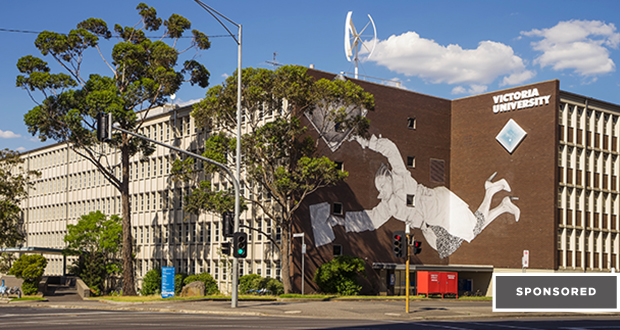University leaders are being asked to champion innovation in a world being reshaped by technology, in what the World Economic Forum describes as the fourth industrial revolution. These advances of technology are rapidly changing the expectations of students, and what dictates a superior student experience.
According to Victoria University Vice President and Registrar, Teresa Tjia, if universities are to stay relevant, they need to embrace digital disruption to address changing student expectations.
“Our biggest challenge in the higher education sector today is relevance, and finding ways to stay relevant at a time when information is ubiquitous,” says Ms Tjia. “What is the relevance of higher education or formal education in this era? That’s why it’s important to be adaptable and flexible to meet changing student expectations.”
Ms Tjia said universities should look at the seismic shift facing the industry as an opportunity, rather than a challenge.
“Universities employ the best, the brightest and most passionate people, and what we need to do is harness that and actually use new technology platforms to do better; to do better research, to teach better and to inspire people, young and old,” says Ms Tjia.
“Digital disruption offers a real opportunity to improve the way the higher education industry transmits knowledge, inspires passion and essentially makes society a better place.”
The university itself is adapting to digital disruption with the introduction of a newly-launched ‘block’ model of teaching, according to Ms Tjia. It is one of the first institutions in Australia to embrace the innovative, internationally-proven model.
“It offers students a way of study that is sequential and intensive, for example, studying one course in four weeks and then taking a break, rather than studying four subjects concurrently across a whole semester.
“We’re also doing it in a blended way so there are opportunities to study online. Later in the year we’re going to launch fully online courses. It’s a real innovation, and it’s really focusing on what the students want.”
At the recent Universities Australia’s 2018 Higher Education Conference in March, TechnologyOne surveyed a sample of university leaders, with 53 per cent of respondents favouring digital disruption and student success as the top issues dominating the sector.
More than 80 per cent of the same survey sample believed the higher education sector is ready for the challenges that digital disruption brings; however, Ms Tjia doesn’t agree it’s that clear cut.
“I think the level of readiness varies. There are some people that are very aware that disruptions are coming. They have been preparing for quite some time, as demonstrated by the introduction of and hype around MOOCs many years ago.
“At the same time, universities can get very complacent and be slow to change at every level of the organisation. So while strategically, they’ll meet challenges very quickly, there’s individual classes that have been taught the same way for the last 40 years.
“In these cases, students are having the same experience they’ve always had, and that’s where universities are going to fail because they’re just not paying attention to the individual expectations of students.”
Ms Tjia says the point of differentiation for universities, and technology vendors, in this era of digital disruption will be understanding student experience, and implores universities to build a true partnership with their software providers.
“Student expectations are changing rapidly, and I think the real point of differentiation for technology vendors will be understanding those expectations.
“Technologies like cloud and Software as a Service are now an expected part of the service; the next phase is having a technology partner that’s invested in the relationship, innovation and focused on the student experience.
“Your relationship with your technology vendor shouldn’t just be about efficiency in terms of making things cheaper, but it’s actually delivering innovation faster, so you can take advantage of it.”
Teresa Tjia – Vice President and Registrar, Victoria University
Victoria University was a recent delegate and presenter at the Universities Australia 2018 Higher Education Conference in Canberra, and is a longstanding TechnologyOne customer. TechnologyOne provides an integrated enterprise Software as a Service solution built specifically for the higher education sector.
To read more stories from TechnologyOne’s customers, click here
Do you have an idea for a story?Email [email protected]
 Campus Review The latest in higher education news
Campus Review The latest in higher education news


